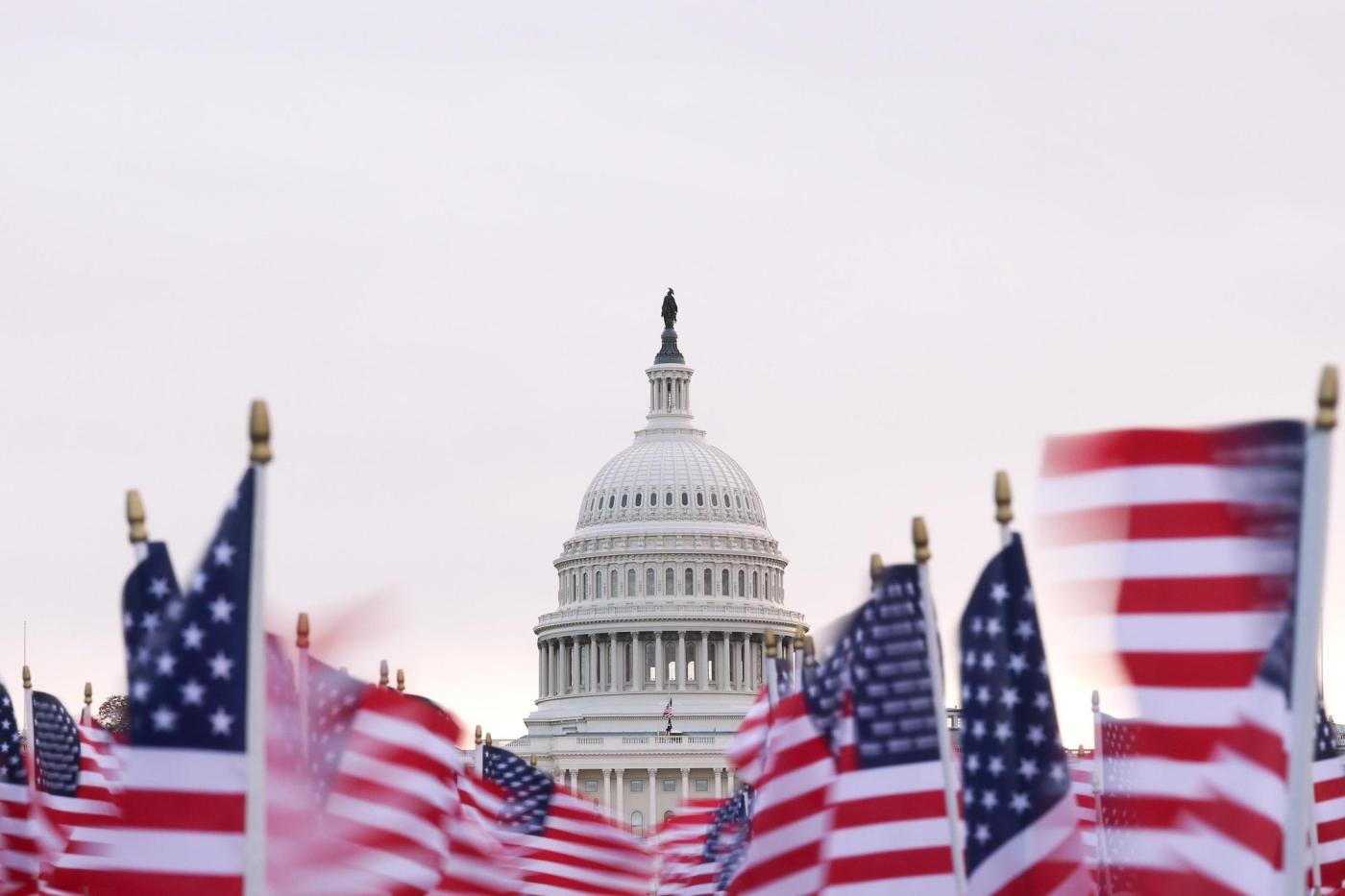Top Stories
Congress Faces Shutdown Fallout Amid Filibuster Debate

URGENT UPDATE: As the longest government shutdown begins to wind down, a critical debate is igniting in Congress over the future of the filibuster. This procedural tool, which requires 60 votes to end debate, has come under fire as Republicans grapple with the fallout from recent elections and their stalled agenda.
Just last week, frustrations boiled over when Senate Democrats utilized the filibuster to block vital spending bills, prolonging the government shutdown. In a surprising twist, the Republican Party, which controls both chambers of Congress and the White House, faced intense backlash for the deadlock. Following disappointing election results, President Joe Biden issued a provocative call: “REPUBLICANS, TERMINATE THE FILIBUSTER!”
Many in the Republican base now see eliminating the filibuster as a path to push through their agenda with a simple majority. However, party leadership warns that this could lead to disastrous consequences. The filibuster, when used appropriately, promotes stability, encourages bipartisanship, and prevents radical shifts in policy by requiring broader consensus.
With tensions rising, experts caution against dismantling this critical legislative safeguard. A complete repeal could embolden extremes on both sides, leading to a cycle of sweeping legislative changes every few years as parties cycle through power. While Republicans may push through tax cuts and immigration reforms, the risk remains that Democrats could wield similar power to expand entitlements and reshape the judiciary.
Concerns about the filibuster’s misuse are valid. Recent years have seen it effectively necessitate a supermajority for even routine matters. In response, Congress has created exemptions for budget reconciliation and judicial nominations. Some argue that ending the legislative filibuster is the next logical step.
Instead of outright elimination, many propose reforms to curb its abuse. Potential solutions include requiring continuous debate, gradually lowering the cloture threshold from 60 votes to 55 votes, or mandating that 41 votes be necessary to extend debate. These changes aim to maintain minority rights while minimizing obstruction.
As we approach a crucial juncture in governance, the words of founding father James Madison resonate: the Senate must operate with “more coolness, with more system, and with more wisdom” than the House of Representatives.
Expect lawmakers to continue debating this pivotal issue in the coming days. The future of the filibuster remains uncertain, but its implications will undoubtedly shape the trajectory of U.S. legislation for years to come.
Stay tuned for more updates as this story develops. The choices made now could have lasting effects on governance and policy in America.
-

 Science4 weeks ago
Science4 weeks agoInterstellar Object 3I/ATLAS Emits Unique Metal Alloy, Says Scientist
-

 Science4 weeks ago
Science4 weeks agoResearchers Achieve Fastest Genome Sequencing in Under Four Hours
-

 Politics4 weeks ago
Politics4 weeks agoAfghan Refugee Detained by ICE After Asylum Hearing in New York
-

 Business4 weeks ago
Business4 weeks agoIconic Sand Dollar Social Club Listed for $3 Million in Folly Beach
-

 Health1 month ago
Health1 month agoPeptilogics Secures $78 Million to Combat Prosthetic Joint Infections
-

 Business4 weeks ago
Business4 weeks agoMcEwen Inc. Secures Tartan Lake Gold Mine Through Acquisition
-

 Lifestyle4 weeks ago
Lifestyle4 weeks agoJump for Good: San Clemente Pier Fundraiser Allows Legal Leaps
-

 Science4 weeks ago
Science4 weeks agoMars Observed: Detailed Imaging Reveals Dust Avalanche Dynamics
-

 Health4 weeks ago
Health4 weeks agoResearcher Uncovers Zika Virus Pathway to Placenta Using Nanotubes
-

 World4 weeks ago
World4 weeks agoUS Passport Ranks Drop Out of Top 10 for First Time Ever
-

 Entertainment4 weeks ago
Entertainment4 weeks agoJennifer Lopez Addresses A-Rod Split in Candid Interview
-

 Business4 weeks ago
Business4 weeks agoSan Jose High-Rise Faces Foreclosure Over $182.5 Million Loan









